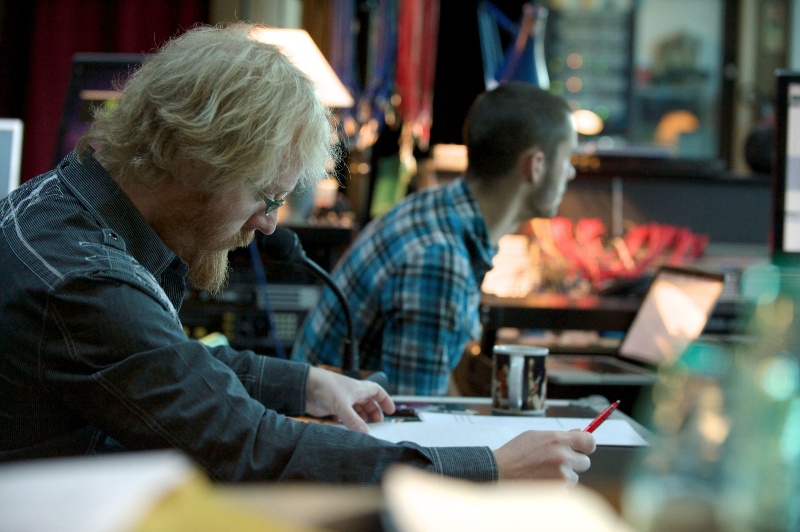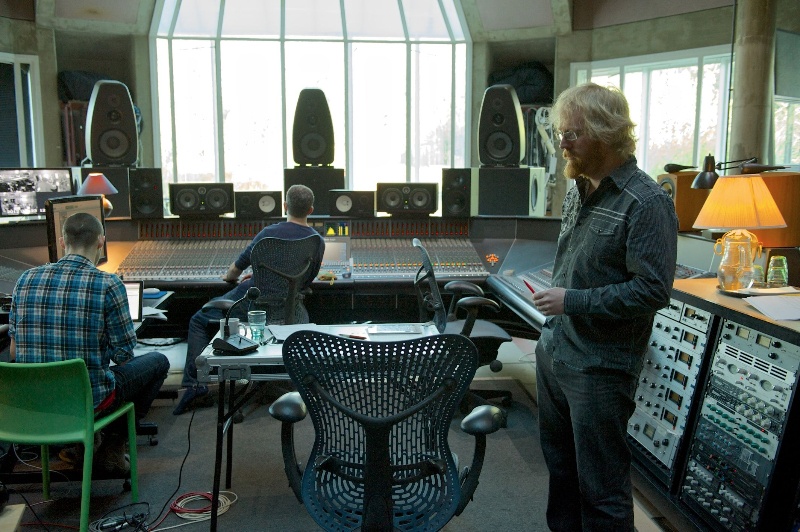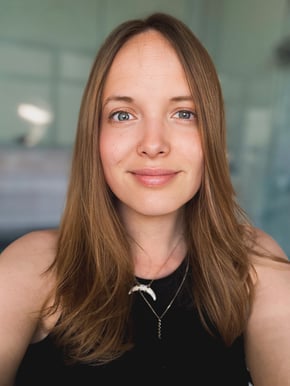An incredible musician and composer, Andrew 'Drew' Morgan has worked on every type of musical project, ranging from avantgarde classical pieces to large film and game projects such as Halo 4. We caught up with Drew to find out more about his personal journey into the music industry and the art of composition.
Tell us a little bit about your journey into composition...
"I was lucky to be started on cello before I was really old enough to choose it consciously. I was drug to cello lessons and played in school orchestras etc, but also found a guitar in my dad’s closet, taught myself to play and starting writing songs and playing in bands. One day it dawned on me that I could improvise on the guitar but not the cello, even though I was technically much more advanced on it. I started to think differently about both instruments and started writing classical music too, encouraged and supported by my high school orchestra teacher who let me write for the ensemble. So my childhood was a healthy mix of Shostakovich, Rage Against the Machine, Neil Young, Nusrat Fateh Ali Khan, Penderecki, Miles Davis, Bach etc etc. I fell in love with music and the people who make it.
"My formal studies were in classical composition but I continued to play in bands and learn about recording, so a big part of my career has been connecting those different worlds. It’s hard to identify a single moment that launched my career as there have been so many people who have recommended me or introduced me to other musicians, every project I’ve been involved in has taught me something or created a contact one way or another. Obviously starting working with Neil Davidge was a big jump in terms of profile, but that happened after many years laying the ground work."
As a Cello player and multi-instrumentalist, did playing the cello influence your career and the way you compose, or does composition sit completely separate from the instrument?
"I do a lot of improvising which is basically writing in real time. I’ve never been a great 'interpreter' or normal classical ensemble player, so playing instruments has always been linked to writing or exploring music. I think it is really important to play an instrument or sing, even badly, as a composer. It helps generate more natural musical ideas as it forces us to make decisions and get to the core of an idea. I vocalise musical ideas a lot, especially in the studio, no matter how embarrassing it may sound… it’s a much quicker way to get to the point! With that said, it is also very important to be able to imagine the music and not just write what I can play, otherwise I’d be limited to my technical ability and not thinking directly about the instruments I’m writing for and what they are capable of."
With synths, do you find the instrument influencing the process of composition or do you try and find instruments to fit and make the sounds you already know you want to achieve for the composition?
"Definitely both! It is really important to be able to imagine the sounds and to know what will work with live players especially, otherwise we end up simply writing what the samples do best rather than what needs to happen musically and emotionally. I don’t want my sample libraries calling the shots! The flip side of that – and there is always a flip side! – is that some sample libraries can be very inspiring and can spark ideas too. It is also great to create ones own sample libraries."
Tell us about how you got involved with the Halo soundtrack?
"I had just started doing some writing with Neil after he set up his new post-Massive Attack studio. I was living in Spain at the time and Neil invited me to come up for a few months to use his second production room for my own projects and to work with him on his solo album. Then Halo showed up, a massive project that he was going to need some extra hands on! My particular skill set was well suited to what the score needed, being a hybrid score, but more importantly we worked well together and, very importantly, get on well, which is key when you know you are going to be doing long, stressful hours."

What's the actual process like writing for game?
"Writing for a game is interesting because you don’t have the finished visuals or timeline to work to. We were given concept art and/or a short paragraph as a brief to work to, which was challenging! Neither of us had worked on a game before, so there was a learning curve for sure, but it was an interesting way of writing. Compositionally, a lot of ideas came from Neil’s primary instrument: his voice. Often he’d sing ideas into his phone or play guitar melodies that we’d then transcribe and work up. Other times it just came from pulling up a basic few instruments and getting the shape of an idea down in a simple arrangement in order to see what the client feels about it, then going into full production mode once the direction was approved. We were producing A LOT of music, so it was important to get the direction right before spending time working it up."
How did you originally get involved with Neil Davidge and those projects?
"Like most things in our industry, through people. I became good friends with an engineer who was cutting his teeth at the same time I was getting started as a composer and producer, trading notes and helping each other out on projects. He met Neil when working with another band, which lead Neil to invite him to help on a film score he was about to start. Hugh wanted me to be involved as his assistant engineer (not my usual work but I knew ProTools etc). I ended up doing a lot of other things on that score including string arrangements, editing etc. We got on well and kept in touch on a personal level afterwards. There wasn’t a reason for us to work together for a couple of years after, but eventually the opportunity arose.
What's the life of a composer like, how do you find work? How different was the work at the beginning of your career to now?
"Most all of my work has been word of mouth. The work I do with Neil comes via his agent and managers, but my other work comes the old fashioned way of recommendations. Things are different now than when I started simply because I have more experience, but I still work on a wide range of projects and have the luck of only working on things I want to, as I did at the beginning of my career. My main priority has always been to make music I think is good, regardless if it is a well-paid project or a passion project. Being a musician isn’t the easiest career path, so I might as well enjoy it!"
What are your must-have tools?
"ProTools, a few good mics and Finale for notation. Obviously it is great to have all the bells and whistles, but I used to travel a lot and always had a backpack with a mic or two, a laptop and an audio interface. I’ve had a few last minute requests for tracks which I was able to do at friend’s houses/hotel rooms. I’ve probably gotten too used to my current set up with multiple screens and controllers and blah-blah-blah, but at the end of the day, those just make the workflow easier but don’t actually come up with any musical ideas!"

What's been your proudest project so far and why?
"I don’t think I could pick just one. Jazz records are different than pop records in that they are snapshots of where a musician is at that given point, but really their work is a life long journey of exploration. I can relate to this feeling and can’t think of a single project that I am most proud of as they all feel like snapshots and moments on a bigger journey of becoming a more complete musician. Each project seems to unlock a piece of that. I’m probably most proud to say I work with a lot of wonderful people who are also great musicians. My life is hugely enriched by this creative community, be it an underground noise musician, a creative studio engineer or 'famous' artist. I won’t work with people I don’t respect or appreciate on a human level – life is too short. Sure, I can point to various aspects of every project I’ve done that I am proud of, but they equally remind me that we’ll never get to the end of music and I have so much more to learn."
Any advice for our students looking to make a career in composition?
"You’ll learn by doing, so get involved in everything you can! With that said, focus on music you are passionate about: you don’t want to get a break doing something you aren’t really into and then get stuck being known for that. You also won’t have your instincts to rely on if you aren’t working on something you love, and without that you’re sunk.
"In my experience, work brings more work. People want to work with musicians who are doing something, not someone who says they could do it. I’ve received commissions based on some music I did as an unpaid passion project. People don’t care what you got paid to make something, they just know if it sounds good or not. Always do your best work, be it paid or for free. Take care of music, it is something sacred and your work is your main calling card. Yes, it is important to have good technical skills that will make you employable and useful to other composers, but technical skills aren’t enough. Stay curious, discover new music, vibes, styles and get into the heart of why different kinds of music work. The answer won’t be technical, but human."
Where can people find out more about you and your music?
"I tend to be more active on social media than my woefully out of date website!"
FIND OUT MORE
andrewmorgan.org
twitter.com/morgannoise


